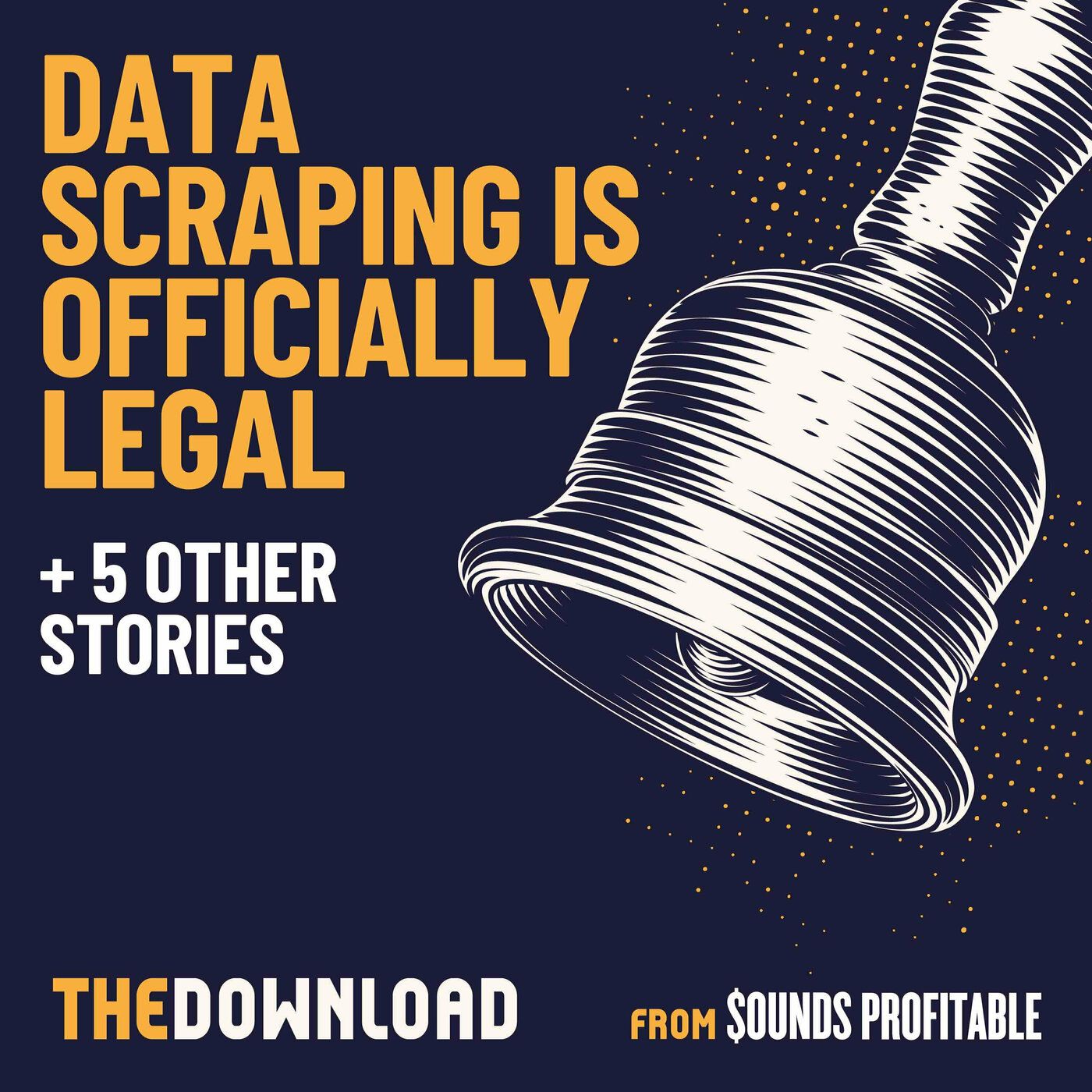Podcast Episode Details
Back to Podcast Episodes
Data Scraping Is Officially Legal + 5 other stories for April 22, 2022
Episode 18
Today on The Download; data scraping is officially legal, recent Spotify purchases prove concerning for some, and what fiction podcasters can learn from their non-fiction cousins. Collecting data just got legally less questionable in the United States. On a Tuesday news roundup for ExchangeWire, Hanna Dillion covered a huge decision by the US court of appeals. The suit, brought by LinkedIn to prevent a rival company from scraping their publicly-available data, has ended with the Ninth Circuit of Appeals declaring the act of data scraping legal. The act of scraping - using software to automatically collect data hosted on the public internet - is now legally defined as an act that is not classified as hacking with the court’s decision. Scraping, thus, does not violate the Computer Fraud and Abuse Act of 1986. The landmark ruling should come as a relief to academics, journalists, researchers, and archivists, for whom scraping publicly available information from the internet is an integral part of their day-to-day work. The decision, however, could also renew privacy and security concerns, as web scraping has been used for nefarious purposes in the past; in May 2021, several tech giants filed lawsuits against Clearview AI, a facial recognition startup which claimed to have scraped billions of social media profile photos, without the consent of users. What does this mean for the podcasting world? One can legally scrape data, but what they do with it remains a legally gray area. Scraping publicly-available RSS feeds for academic purposes is fine. Scraping those same feeds for email addresses with intent to spam anyone who isn’t using a certain company’s hosting service with offers to switch to said service is subject to other pre-existing laws. For more on the state of data scraping, see our March 11th episode coverage of a story about a similar lawsuit. Up next, in yet another recurring thread that has resurfaced: last Friday a Morning Brew article by Alyssa Meyers went live, titled “Spotify’s acquisition of podcast analytics firms has some in the industry concerned.” The piece acts as an industry reaction to the February acquisition of Podsights and Chartable (see The Download’s February 18th episode for our coverage at the moment). In the interest of full disclosure, we must note one of the industry voices quoted by Meyers is Sound Profitable’s own Bryan Barletta. The week after Spotify announced the acquisitions, Mike Kadin, CEO of podcast hosting and monetization platform RedCircle, told Marketing Brew it “had folks reach out to us from major publishers and ask if we have attribution technology. I’m not super worried about it, but it does sadden me to see more chunks of the ecosystem getting centralized.” It’s no secret the official position of The Download is pro-third party analytics to keep the industry honest and prevent further walled gardens of information in adtech. The concerns continue to be real and the industry will continue to fret until more options exist. Once again we return to highlighting the global nature of podcasting outside of English-speaking markets. On Saturday Luis Pablo Segundo, writing for Milenio, broke down the results of a recent study. The flashiest piece for our audience is the reveal that ad spending on podcasts in Mexico has risen fifty percent from 2019 to 2021, though it still represents a small market share in comparison to traditional radio. Traditional radio is expe
Published on 3 years, 7 months ago